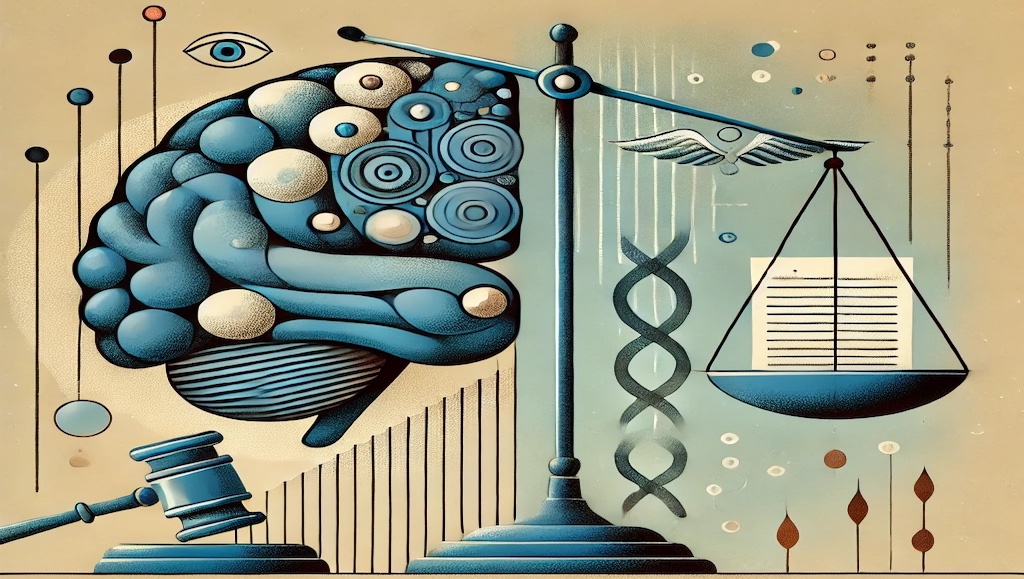
Planning your estate is one of the most important steps someone can take to ensure that his or her wishes are honored and ensuring that loved ones are cared for. However, legal disputes often arise if questions about someone’s mental capacity are raised at the time a will or trust was executed. This is where a contemporaneous evaluation of testamentary capacity by a forensic psychiatrist (a psychiatrist with specialized training and experiencing in applying their knowledge of mental states to legal issues and questions) becomes invaluable.
Testamentary capacity refers to the mental ability to make a valid will. While different states have different criteria, California law spells out the factors that would render someone not competent to make a will (or to “lack testamentary capacity”).[1]
At the time a will or trust is executed, a person must have the mental capacity to be able to understand the nature of the testamentary act, understand and recollect the nature and situation of the individual’s property, and remember and understand their relationship to all those whose interests are affected by the will.
The person making the will (or testator), at the time the will or trust is executed, must not suffer from a mental health disorder with symptoms including delusions or hallucinations that directly affect how the individual devises his or her wills. If delusions or hallucinations cause one to devise property in a way they would not have done absent the psychotic symptoms, they may lack testamentary capacity and the will may be invalid.
If a will is contested, the primary argument often involves the claim that the testator (person making the will) lacked testamentary capacity. If the court finds this to be true, the will can be declared invalid, leading to family disputes and potentially diverting assets away from intended beneficiaries.
The number of legal challenges to a will on the basis of testamentary capacity has been increasing in the past two decades. This may be due to an aging population and an increase in dementia recognition and prevalence. If there is a challenge to a will, this can conservatively cost $10,000 to $50,000.
Unfortunately, these challenges often occur only after the testator is deceased and affected parties learn of the disposition of assets. While experts can be helpful in reconstructing someone’s mental state around the time a will was executed based on records and collateral, it can be challenging to prove a mental state one way or another if available information is limited.
A contemporaneous evaluation of testamentary capacity is a mental health assessment conducted at the time the will or trust is created. Sometimes referred to as testamentary capacity certification or a real-time testamentary capacity assessment, this evaluation provides a documented, professional opinion about the testator’s cognitive and psychological state. The evaluation typically includes:
These evaluations should be recorded and accompanied by a written report, ensuring there is clear documentation and evidence of the testator’s mental state that allowed the forensic psychiatrist to come to an opinion. Forensic psychiatrists are trained to understand the legal standards for testamentary capacity, making their evaluations more relevant and persuasive in court.
Unlike treating clinicians, forensic psychiatrists are neutral parties who provide unbiased evaluations, focusing solely on the individual’s capacity at the time of the evaluation.
A contemporaneous evaluation can prevent future disputes by providing clear evidence of capacity, making it harder for disgruntled heirs to challenge the will. A formal report by a forensic psychiatrist serves as concrete documentation, which can be invaluable if the will is contested.
Undue influence is highly relevant in testamentary capacity evaluations because it can invalidate a will, even if the testator appears to have sufficient cognitive ability to make estate decisions. Courts often assess both capacity and whether the testator acted freely when executing a will. A contemporaneous evaluation can help document not only cognitive function but also whether the individual was making decisions without coercion.
Undue influence occurs when someone exerts excessive pressure on a testator, overriding their free will in a way that benefits the influencer. This is particularly concerning in cases where a vulnerable individual, such as an elderly or cognitively impaired person, is manipulated into making estate decisions that they might not have made otherwise.
If a will is challenged based on undue influence, courts often rely on retrospective testimony and circumstantial evidence. Psychiatrists often provide expert testimony regarding the vulnerability of the victim. In California, evidence of vulnerability includes incapacity, illness, disability, injury, age, education, impaired cognitive function, emotional distress, isolation, or dependency, amongst other potential factors.[2] Often this information is determined based on collateral information such as records and witness testimony.
A forensic psychiatrist can assess both cognitive ability and susceptibility to undue influence by conducting structured interviews to explore reasoning and independent decision-making. A forensic psychiatrist can review medical and psychiatric history to determine risk factors for suggestibility (e.g., dementia, depression, personality vulnerabilities). They can evaluate the influence of third parties during the estate planning process. With all of this information, the forensic psychiatrist can provide a detailed report that not only documents capacity but also explicitly addresses whether external pressure may have been a factor. This real-time evaluation may be stronger than after-the-fact analysis. Having an evaluation done in real time provides clear, objective evidence that the testator acted freely and competently. A recorded evaluation with accompanying report can be presented to the court as supporting evidence.
Involving a forensic psychiatrist for a contemporaneous evaluation of testamentary capacity can provide peace of mind and safeguard your estate from potential legal battles. It’s an investment in protecting your legacy and ensuring that your final wishes are honored.
If you have concerns about your estate or the capacity of a loved one to create a will, discuss with your estate attorney whether involving a forensic psychiatrist will be beneficial.